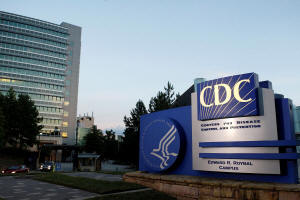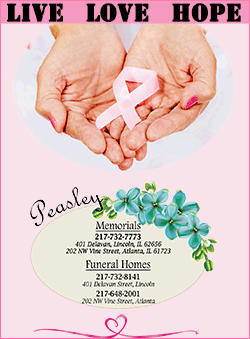U.S. CDC signs off on Moderna, J&J COVID-19 vaccine boosters,
mix-and-match shots
 Send a link to a friend
Send a link to a friend
 [October 22, 2021]
By Manas Mishra and Julie Steenhuysen [October 22, 2021]
By Manas Mishra and Julie Steenhuysen
(Reuters) - The U.S. Centers for Disease
Control and Prevention (CDC) on Thursday recommended the COVID-19
vaccine boosters for recipients of the Moderna Inc and Johnson & Johnson
shots, and said Americans can choose a different shot from their
original inoculation as a booster.
CDC director Rochelle Walensky signed off on the recommendations late on
Thursday, aligning the agency with the U.S. Food and Drug
Administration's authorization on Wednesday for the additional boosters
and "mix-and-match" dosing.
Walensky said that vaccines authorized in the United States "are all
highly effective in reducing the risk of severe disease,
hospitalization, and death, even in the midst of the widely circulating
Delta variant" of the coronavirus.
A panel of advisers to the CDC had unanimously backed COVID-19 vaccine
boosters earlier on Thursday.

Still, health officials and public health experts said the booster
rollout could be confusing.
The panel struggled with trying to make the language of its
recommendations as clear as possible, and also offer flexibility for
patients to get a vaccine of their choice.
"A really important aspect of all of this is being clear and not dancing
on the head of a pin, so that we don't further confuse the American
people," said Dr. Beth Bell, a panel member and clinical professor in
the department of global health at the University of Washington in
Seattle.
The recommendations also open the door for recipients of the one-shot
J&J vaccine to get a dose of the Pfizer or Moderna vaccines that have
been shown to afford greater protection in a variety of studies.
Although these vaccines have been highly effective in preventing serious
illness and death, some government scientists have suggested that
boosters are needed to keep immunity high, especially as the extremely
contagious Delta variant can cause breakthrough infections among some
who are fully vaccinated.
ACIP voted to recommend booster doses for everyone 18 and older who
received a first dose of Johnson & Johnson's vaccine at least two months
earlier.
For those who received their second dose of Moderna's vaccine at least
six months earlier, ACIP recommended a third shot for those age 65 and
over, as well as some individuals at risk or severe illness and those at
high risk of exposure to the virus through their jobs.
Dr. Helen Talbot, an infectious disease expert at Vanderbilt University
and a panel member, said she voted for the recommendation, but
cautioned, "Moderna has very good vaccine efficacy. There will be some
confusion with the higher versus lower dose."
Booster doses of the Moderna vaccine will be 50 micrograms, half the
strength of the original shots.
[to top of second column]
|

A general view of the U.S. Centers for Disease Control and
Prevention (CDC) headquarters in Atlanta, Georgia September 30,
2014. REUTERS/Tami Chappell

"Those not at high risk should be really thoughtful
about getting the higher dose. I do think we need to be very aware
of potential complications."
Experts said communicating those risks could be an issue, especially
given the flexibility of allowing people to choose a different
vaccine from their original series.
"At the end of the day, even that phrase 'mix and match' pretty much
gives people the latitude to ... do pretty much anything," Glen
Nowak, a risk communication professor at the University of Georgia
and former communications director for CDCís National Immunization
Program said after the meeting. "I think that's going to be an
issue."
The FDA and CDC previously signed off on booster shots of the
COVID-19 vaccine from Pfizer Inc and partner BioNTech SE for the
same groups included in the Moderna recommendations.
Pfizer released data on Thursday suggesting that a booster dose was
highly protective for those age 16 and older compared with
protection nearly a year after receiving the two-dose regimen due to
waning efficacy over time.
About 11.6 million people have so far received a booster dose,
according to data from the CDC.
The FDA and CDC have been under pressure to authorize the additional
shots after the White House announced plans in August for a
widespread booster campaign.
Other countries such as Israel have begun offering boosters to a
broad population, but it is not yet known whether the United States
will follow suit.

(Reporting by Manas Mishra in Bengaluru and Julie Steenhuysen in
Chicago; Additional reporting by Ann Maria Shibu; Editing by Bill
Berkrot and Grant McCool)
[© 2021 Thomson Reuters. All rights
reserved.] Copyright 2021 Reuters. All rights reserved. This material may not be published,
broadcast, rewritten or redistributed.
Thompson Reuters is solely responsible for this content. |